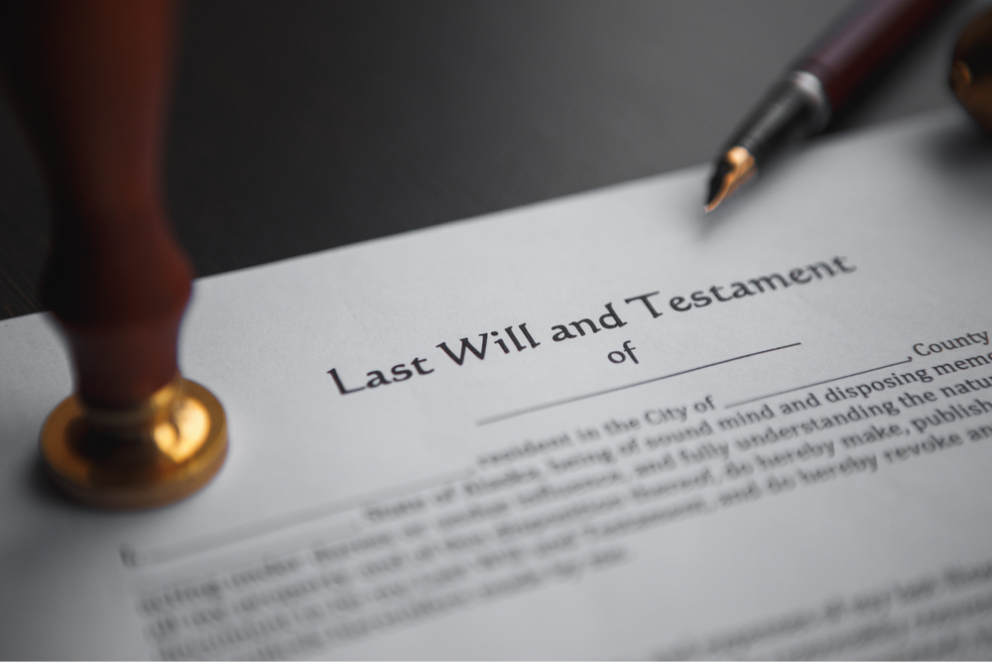

Home Services Disputing a Will Do I need a will?
Under 35 and Don’t Have Many Assets? You Still Need A Will
Under 35 and Don’t Have Many Assets? You Still Need A Will
I Don’t Have Many Assets. Do I Need a Will?
Many young adults think that Wills are only a matter for older people who have accrued significant assets and property throughout their lives. That’s not the case – even if you’re a young person just starting to make your way in the world, it’s important to have your affairs in order should something go wrong.
One reason for this is that most young people have far more assets and property to their names than they realise. Even if you do not own your own home or have a significant investment portfolio, there are a number of reasons why you should still have a will.
1. Superannuation Death Benefit
There is one asset that almost every person has, but is often forgotten about – the superannuation death benefit. When a member of a superannuation fund dies, the fund must pay a superannuation death benefit to an appropriate beneficiary. Generally, this will be to a surviving partner, dependants (usually your spouse and children), or to the deceased’s estate.
Your superannuation death benefit might be larger than you think. It consists of the contributions you have made to the fund, and the insurance benefits that are attached to the policy. Most people who have been working for some time will have accumulated thousands of dollars of super, often without realising. You can check how much your death benefit is by looking at your superannuation statement.
Although superannuation can’t be directly included in a person’s Will – because it is held by the Trustee of the fund on behalf of members – you can still take action to control who receives your death benefit.
One option for dealing with the death benefit is to make intentions in your Will about who you want to receive it. The Trustee is not bound by your Will and does not have to follow your wishes, but it is a useful starting point for the Trustee to consider.
The foolproof option is to make a Binding Death Benefit Nomination. The nomination process is managed directly through your super fund, and allows you to select who you would like to receive the death benefit, and in what proportions.
If you do have a Will, you should consider nominating your estate or legal personal representative. This way, you can specify in your Will how and who you want your super to be distributed to, and can have peace of mind that your super will be dealt with by people you trust after you die.
2. Guardianship of Children and Pets
If you have children or pets, having a will is especially important. The only way to determine who will take care of your children or pets (which for many of us are just like members of our family!) is to appoint a guardian in your will. If you do not appoint a guardian in your will, a judge will determine will make this decision for you. Again, this may or may not may accord with your wishes. The judge will only be able to look at factors such as where the person lives and their relationship to you to make this determination.
3. Specific and Charitable Bequests
Without a will, your assets will be distributed according to the laws of intestacy of the state in which you live. Although you may not own a house or have a significant investment portfolio, making a specific bequest in a will allows you to determine who will get sentimental items such as your great grandmother’s china, your wedding ring or family photo albums. Wills also provide a great way to make meaningful charitable donations. For example, you may choose to leave 5% of your estate to the Salvation Army.
4. Funeral Arrangements
Providing for your own funeral arrangements in a will can also help to alleviate some of the stress which naturally occurs after a loved one dies. Without a detailed description of this your family will be required to make difficult decisions at an emotionally vulnerable time. Including this information will, for example help family members with determining burial or crematory arrangements and how you want your life to be celebrated.
5. What should I Do?
If you don’t have a Will when you die, the law determines where your assets go. This is called intestacy. Intestacy often causes a tricky situation for family members because the legal process involved can be complicated to navigate, and it can lead to the deceased’s assets being distributed in a way that does not reflect their wishes. For more information, read our helpful guide to Intestacy (insert hyperlink).
To avoid this situation, you should get in contact with our experienced Wills and Estates lawyers at Gordon Legal. We will make sure that all your assets are accounted for, including your super.
Even if you don’t own a home or have an expensive car, you do have assets and you should make a Will – it is not a daunting process.
Call us on 1800 21 22 23 to get started.
We are here to help
When you’re ready, give us a call or click on the button below to send us a message. It will go straight to a caring and committed member of our team who will contact you within 24 hours.
